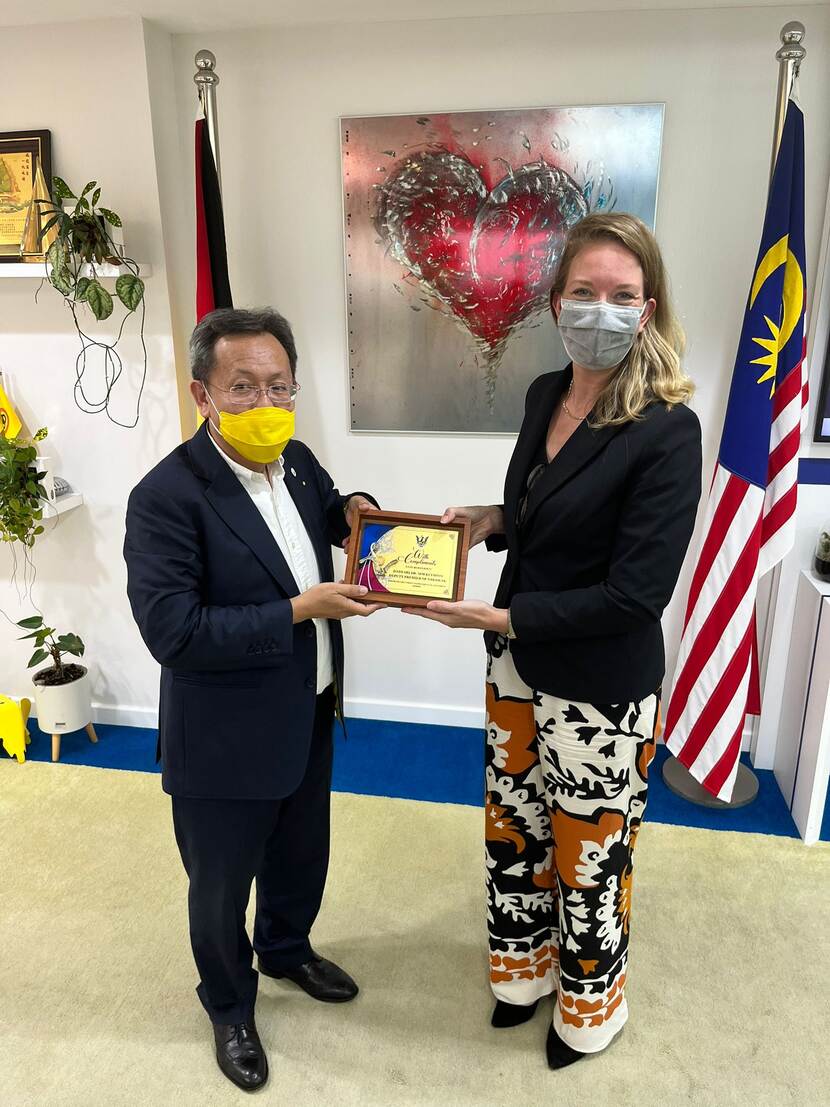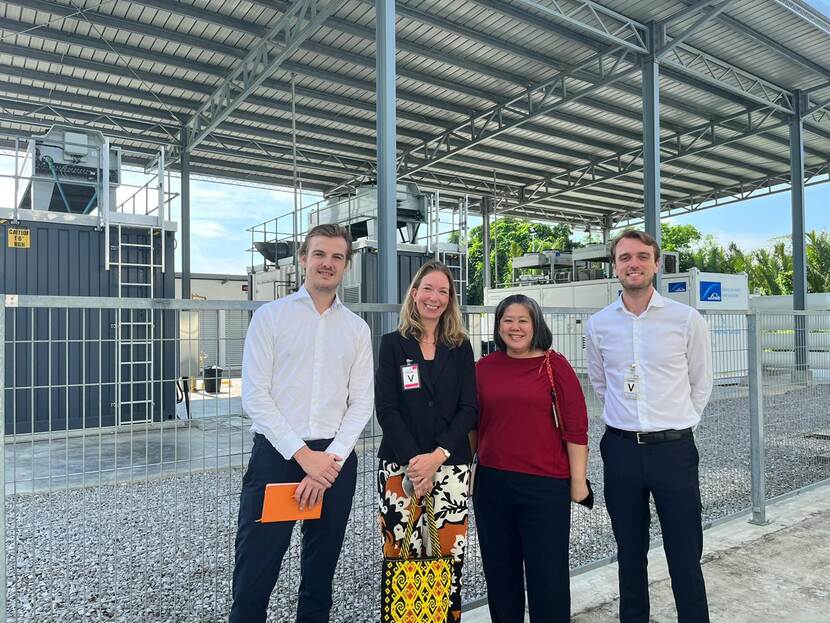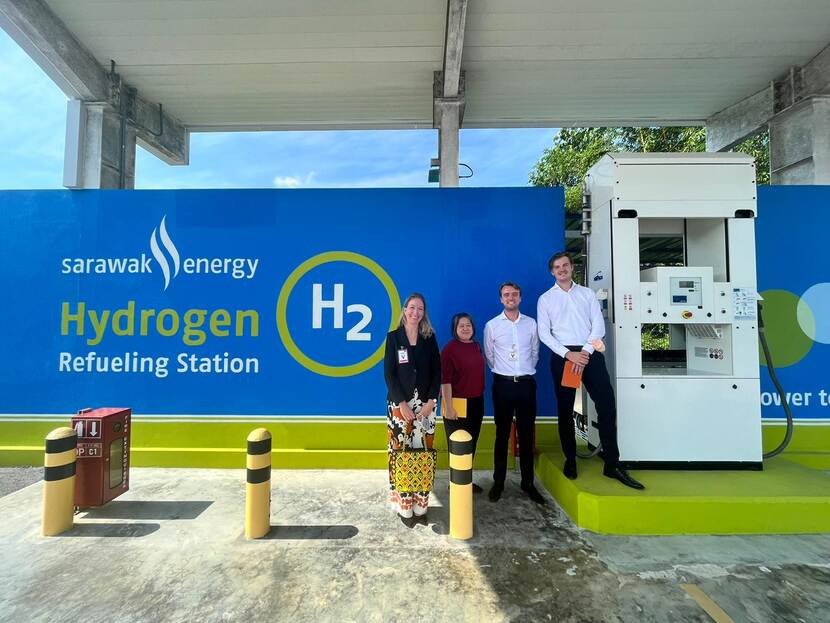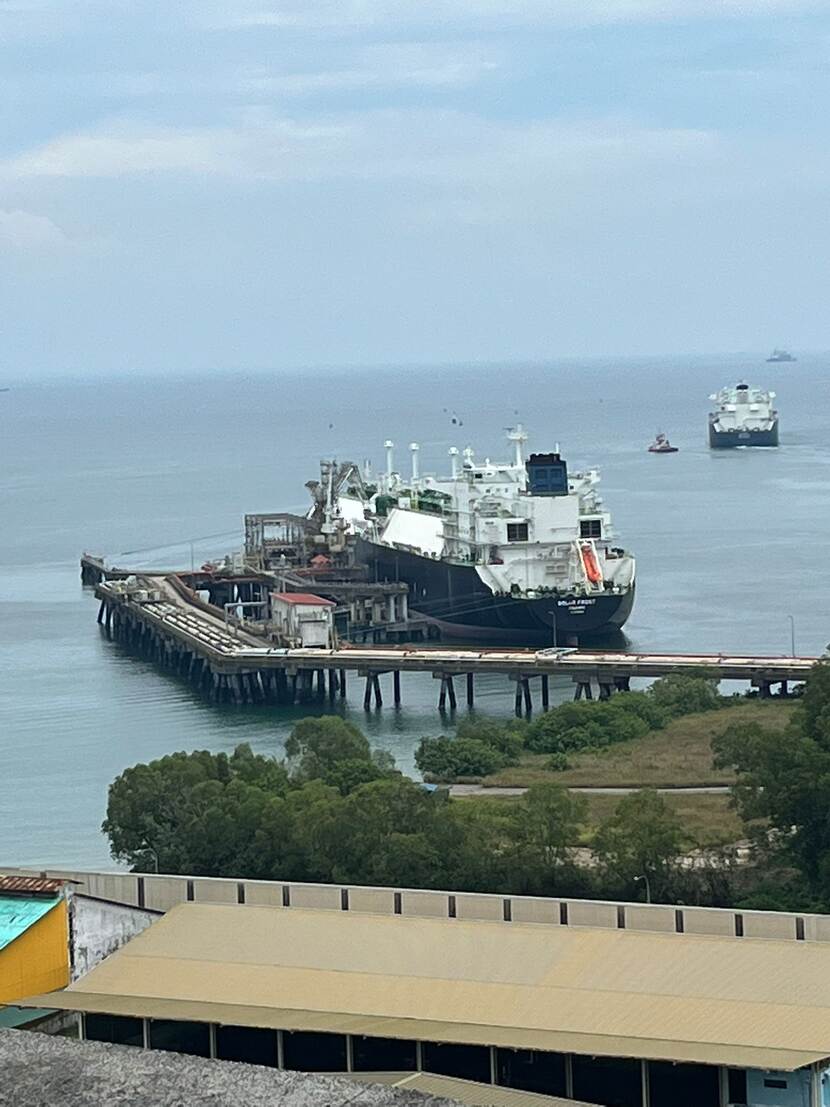Visit to Sarawak - Malaysia
Visit to Sarawak
The world has gone through several industrial revolutions. The first industrial revolution was driven by coal, that gave us the steam turbine. The second revolved around the discovery of oil, gas, and electricity, and brought us power and the combustion engine. The third industrial revolution introduced nuclear power, and saw electronics entering the landscape. With the turn of the 2nd millennium, the world has embarked on a new voyage, the fourth industrial revolution. This time, our lives are impacted by the discovery and development of the internet, and once again, a new energy revolution known as the energy transition. Fossil fuel resources are being phased out and replaced by renewable and clean energy sources, such as solar and wind, hydrogen, and biomass. Countries all around the world are taking on this challenge, to decarbonize the energy system.
From 15-18 August 2022, a delegation from the embassy of the Kingdom of the Netherlands in Malaysia visited Sarawak, one of the two Malaysian states on Borneo, the third largest island in the world. Sarawak is rich in natural resources. Covered with rainforests and home to many oil palm plantations, the state is both important for its biodiversity, as well as its produce for global food production. Additionally, Sarawak aims to capture the economic opportunities of the emerging hydrogen and bio- economy. The state has the vision to develop into an energy hub for the region and the world. Sarawak is a first mover, actively engaging with stakeholders to develop ambitious plans into implementation and already breaking ground on numerous clean energy projects. The Dutch embassy met with government representatives and stakeholders in Sarawak to gain insights into the visions, strategies and future opportunities of the emerging hydrogen and bio-economy.
On Tuesday the 16th of August, the delegation had a busy schedule, meeting up with various stakeholders in Kuching, the state’s capital. Sarawak Energy received us at their combined hydrogen production plant and fuel station, built specifically to refuel the hydrogen busses acquired by the state of Sarawak for its public transportation system. The delegation was introduced to a concrete example of how Sarawak has already applied hydrogen technologies.
Hereafter, the delegation visited SEDC Energy. This organization is responsible for the energy transition in Sarawak. SEDC Energy gave us a presentation on the natural resources available in the state, and the implementation plans for hydrogen production, export, and use. Finally, the delegation met up with the Economic Planning Unit, responsible for developing the state’s economic development plans. The EPU gave us insight into the future energy plans and developments for Sarawak, indicating where the state is heading. Finally, a meeting took place with Regal, a property development company responsible for the development of a new port and industrial complex, and one of the partners in a new bio port project aiming to valorize palm oil waste and algae resources into biofuels.
On Wednesday the 17th, the delegation visited a multifuel station, in which fossil, hydrogen, and electricity refueling stations are integrated into one single fuel station. The state aims to develop a network of these multi-fuel stations to boost the uptake of various energy sources. Hereafter, the delegation met up with Sarawak Metro, responsible for the development of Sarawak’s new hydrogen powered metro network, to enter service by 2026.
The day ended with a visit to the Biodiversity Centre where research on Traditional Knowledge of Sarawaks natural resources is combined with a state-of-the-art algae production facility.
On Thursday the 18th, the delegation met up with Bintulu Port Holdings, the port authority in Bintulu. Bintulu Port Holdings is developing a new port area by the name of Selamaju port, in which the state aims to develop a new heavy industrial cluster. Additionally, the delegation visited several sites, including a new methanol plant under construction. The visit to Bintulu Port Holdings provided the embassy with insights into the status of hydrogen and biofuel production plans in Bintulu, and allowed the embassy to get in touch with relevant stakeholders of these projects.
The Dutch embassy can look back on a fruitful visit to Sarawak, which has provided a strong foundation to venture further into these topics in the future, seeking out new opportunities for cooperation between Malaysia and the Netherlands.




